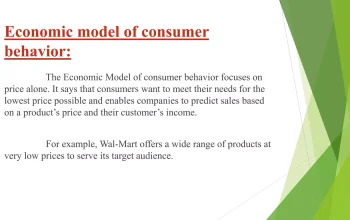Marketing is the practice of acquiring customers, cultivating relationships with them, and then satisfying their needs by fulfilling those desires.
Marketing is an integral component of any business, and having an understanding of marketing can help you meet your objectives more efficiently. There are various concepts to consider when crafting a marketing plan for your company; each one being beneficial in developing a successful campaign.
Product Concept
The product concept of marketing is a theory that contends people will buy products with superior quality, performance and innovative features than their rivals. It also assumes other factors like availability and price have little or no bearing on consumer decision-making.
Companies adhering to this marketing philosophy typically release products with enhanced features, improved performance and more innovation than their rivals. As a result, they can charge higher prices than their rivals.
Businesses that can leverage this marketing philosophy have the potential to rapidly rise to prominence within their industries. This strategy is particularly advantageous for technology and high-tech firms where new products are released frequently.
As part of the concept development process, companies typically conduct customer research to assess how well their product or service idea fits within the market. They may also conduct test marketing, which entails placing products in stores and monitoring sales results.
Production Concept
The production concept of marketing is one of the guiding principles that determine a business’s approach to the marketplace. It emphasizes increasing production efficiency to increase supply of goods and services.
The concept is founded on the Says Law, which states that “Supply Creates Demand.” This suggests that if a product is easily available, people will purchase it more frequently. Furthermore, customers tend to favor low-priced and widely accessible goods.
Companies using this concept typically produce in large batches to enable them to sell their goods in multiple locations at lower costs. In some cases, this may be done through outsourcing or investing in countries with cheaper labor costs.
Though this concept has had success in the past, it has become outdated due to consumers’ desire for high-quality and innovative products. Furthermore, modern markets are highly competitive, making it harder to succeed with this approach.
Selling Concept
Marketing is the practice of selling products. To be successful, heavy sales and promotion efforts must be made in order to generate profitable sales. It often targets unsought goods like insurance that customers do not typically purchase, creating an opportunity for unsold goods like insurance to be sold.
It also attempts to sell its product by tracking down and persuading its target market with its benefits. This strategy works on the assumption that if customers are encouraged into purchasing the item, they will likely enjoy it.
This is an unwise assumption, as studies consistently demonstrate that dissatisfied customers do not purchase again. To overcome this obstacle, make sure the product exceeds customer expectations and exceeds what they might be expecting.
Marketing is a much broader and deeper endeavor than sales. It begins with the identification of customer needs, continues through production, packaging, promotion, pricing, distribution and finally sales – all with the goal of increasing value for customers while making profits for the business.
Market Concept
The market concept is a management approach that encourages firms to meet the needs and desires of their customers. It calls for striking an equilibrium between company profits, customer demands, and public interests.
Marketing research is essential for companies with marketing concepts, as it allows them to understand customer needs from a customer-centric standpoint and craft strategies that exceed those of competitors. But for any successful campaign to take place, internal coordination between departments within the firm must also take place.
In the early decades of the 20th century, many industries were challenged with an excess of production capacity and fierce competition for customers. This spurred manufacturers to improve their products in terms of quality, performance, innovation, and designs.
The product concept holds that consumers will gravitate toward products with superior quality, performance, innovative features and designs. Adherents of this philosophy prioritize continuous product improvement, believing customers will pay more for well-made items.





